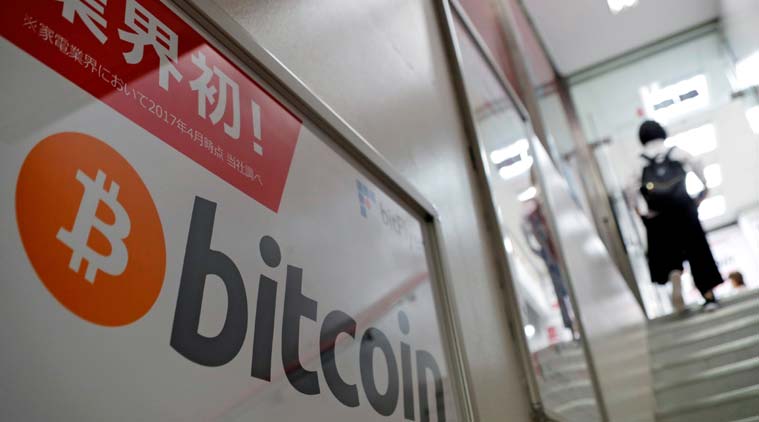Budget 2018: Bitcoins, crypto-currencies illegal, but govt to explore Blockchain
In the Union Budget 2018, Finance Minister Arun Jaitley talked about the issue of crypto-currency, and once again reiterated that these are not recognised as legal tender. But the government plans to explore the use of blockchain
 Budget 2018: The government said it will explore blockchain technology, but said crypto-currency continues to remain illegal. (Source: Reuters)
Budget 2018: The government said it will explore blockchain technology, but said crypto-currency continues to remain illegal. (Source: Reuters)
In the Union Budget 2018, Finance Minister Arun Jaitley talked about the issue of crypto-currency, and once again reiterated that these are not recognised as legal tender. Both the Finance Ministry and RBI had already issued notices in December 2017, pointing out that they did not recognise the use of crypto-currencies as legal.
During his budget speech, the Finance Minister said, “The Government does not consider crypto-currencies legal tender or coin and will take all measures to eliminate use of these crypto-assets in financing illegitimate activities or as part of the payment system.” In short, the government has made it clear that it does not look towards Bitcoins or any other form of crypto-currency for future payments in India. These are unlikely to be recognised in India as legal tender if one goes by the latest statement.
However, Jaitley also added that the government would try and explore the blockchain technology, which drives bitcoin and other crypto-currencies. “Distributed ledger system or the block chain technology allows organization of any chain of records or transactions without the need of intermediaries. The Government will explore use of block chain technology proactively for ushering in digital economy,” he said.
The recognition of blockchain technology for future use in the digital economy has received positive reactions from the industry. Though the budget does not specifically talk about how blockchain will be explored, it should be noted that in digital economy the major use for this has been around crypto-currencies like Bitcoins.
Blockchain technology is what powers bitcoins. How it works is that each transaction on the network can be verified by all the nodes (computers) on the Bitcoin network. All records, be it of sales, transfer of ownership of the Bitcoin are recorded on this Blockchain. Reversing a transaction record requires brute force and for that someone or some organisation would need control of more than 51 per cent of the network.
A new block is effectively added every time a transaction is made and every single Bitcoin transaction that has taken place since the first one was created in 2009 is on record on this network. Additionally anyone who joins the Bitcoin network can crosscheck the transactions and help maintain these blocks. The key to understanding blockchain is that there is no one central network managing any this and it is supposed to be a peer-to-peer network. Maintaining the Blockchain requires considerable CPU power and electricity as well.
Analysts said that the government’s decision to focus on newer technologies was a positive step. “It is heartening to notice that the Budget 2018 has put spotlight on cyber technologies and focused on creating CoEs (Center of Excellences) for emerging technologies such as Artificial Intelligence, Machine Learning, IoT, Big Data and Blockchain, etc. In addition, the move to dispel the ambiguity around the use of cryptocurrencies in India will help to contain cybercrime and cyber terrorism,” said Sivarama Krishnan, Partner and Leader Cyber Security, PwC India.







